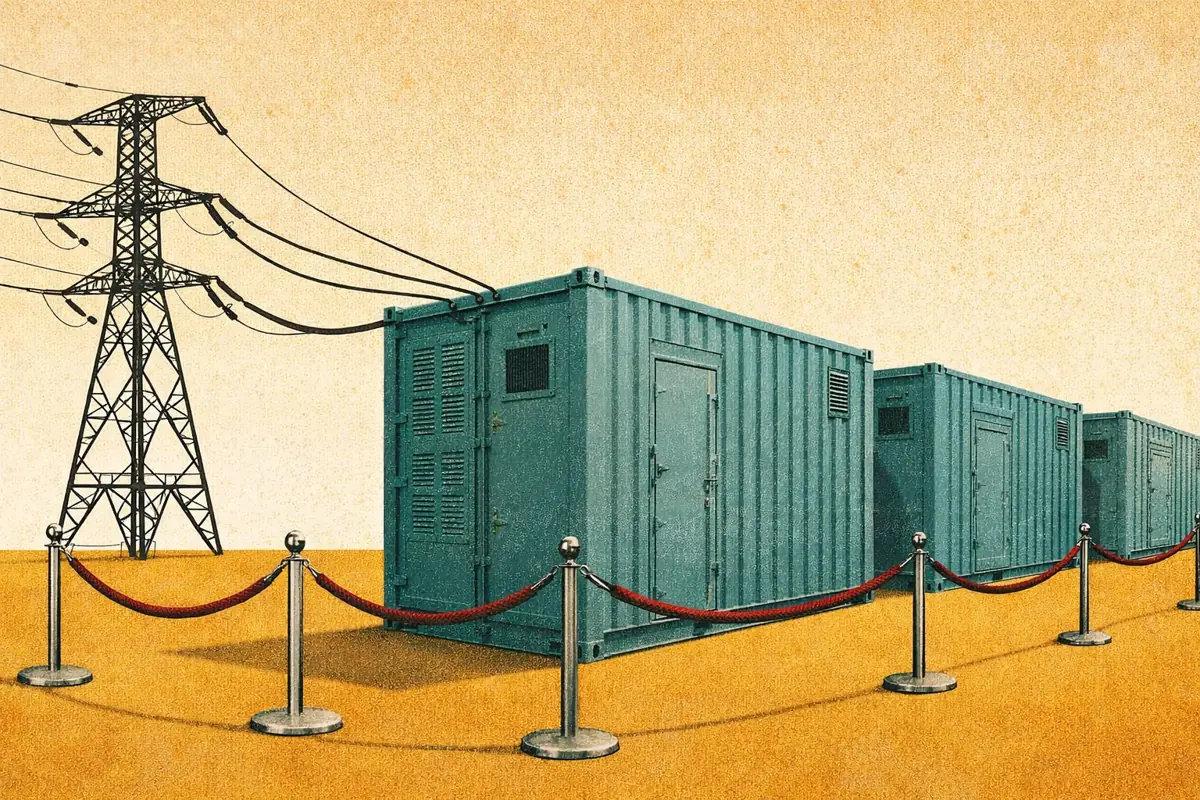Battery energy storage revenues decrease by 26% in July 2024
In July, average battery revenues in Great Britain fell 26% to £39k/MW/year, continuing the fluctuating trend seen in recent months. Falling gas and carbon prices, reduced wind generation, and low demand reduced revenues across all income streams.

Modo Energy recently updated its methodology for calculating the monthly BESS index. Previously, if a battery held a Capacity Market contract, its MW would be included in the BESS index calculation. The new calculation only includes MW from batteries that were active in merchant markets (wholesale, Balancing Mechanism, and ancillary services). This means the BESS index for some months may have changed from recent reports.
Revenues fell across all income streams but frequency response was hit the hardest
In May, revenues fell in every market batteries operate in. The largest reduction occurred in frequency response, with total revenues from the combination of all three frequency response services decreasing from £14k/MW/year to £4k/MW/year.
Balancing Mechanism revenues reduced by 50% to £4.4k/MW/year, while wholesale revenues decreased by 3% to £18k/MW/year.
Capacity Market revenues reduced to £9.9k/MW/year as we enter the height of summer - the month when units are paid the least for their Capacity Market contracts.

Battery revenues are driven by a range of factors, including wind generation, gas and carbon prices, and in-merit dispatch rates. July saw falls in all of these macro factors.

Wholesale spreads reduced 22% but wholesale revenues remain stable
Monthly average wholesale spreads reduced to £47/MWh, 80% of the figure for June. Despite 15 hours of negative-priced periods in early July, wholesale spreads reduced throughout the month, averaging £34/MWh in the final week of July.
Already a subscriber?
Log in








